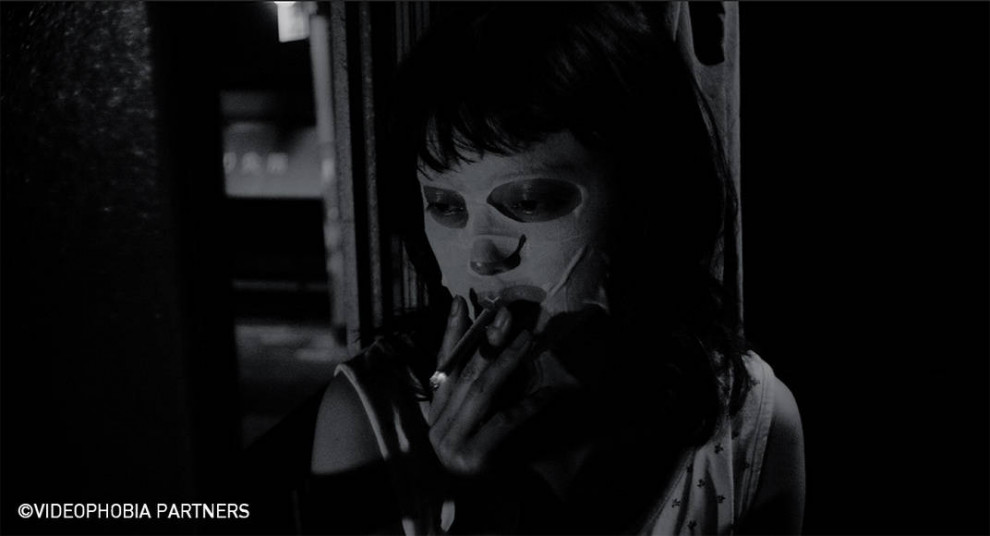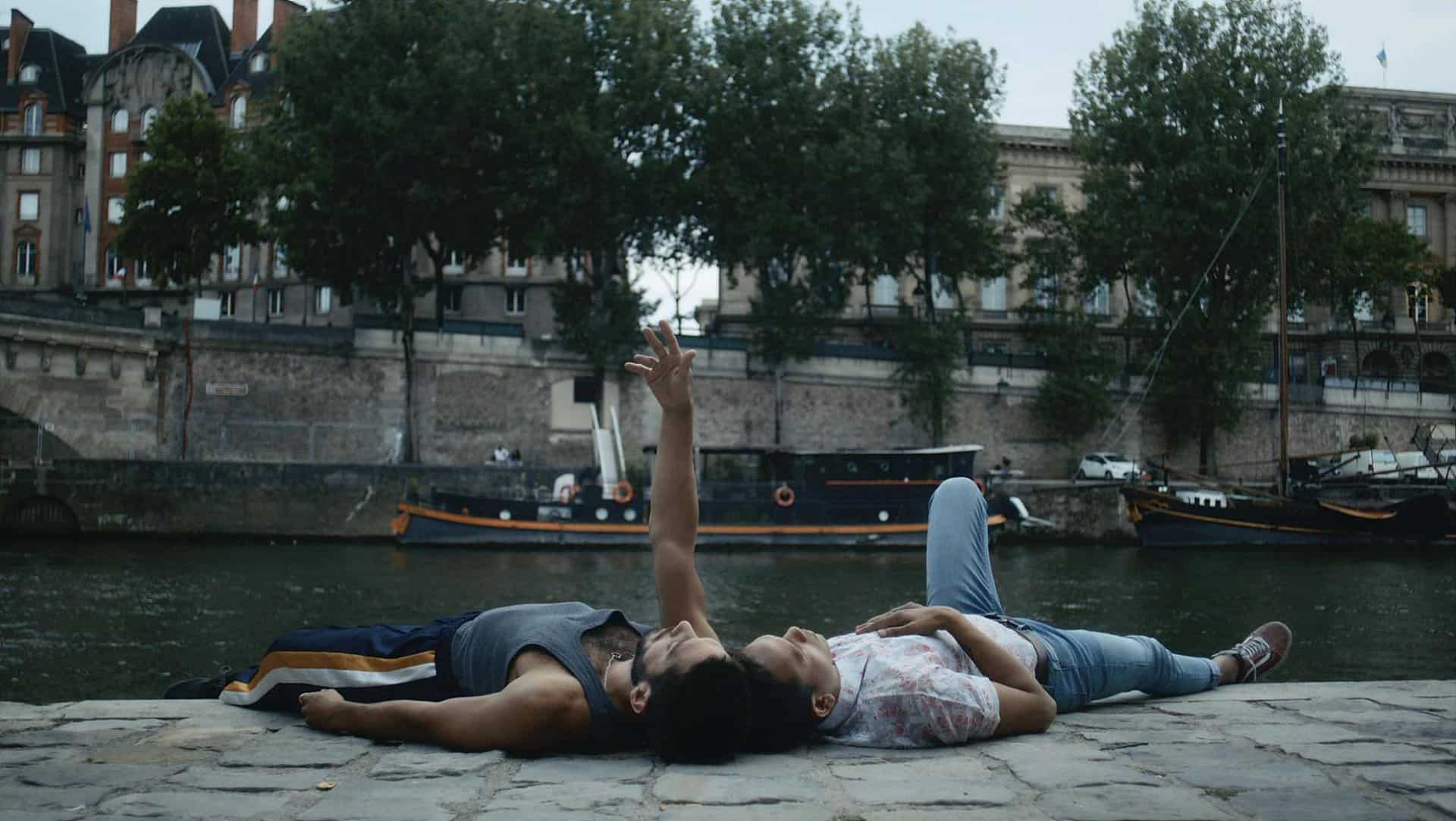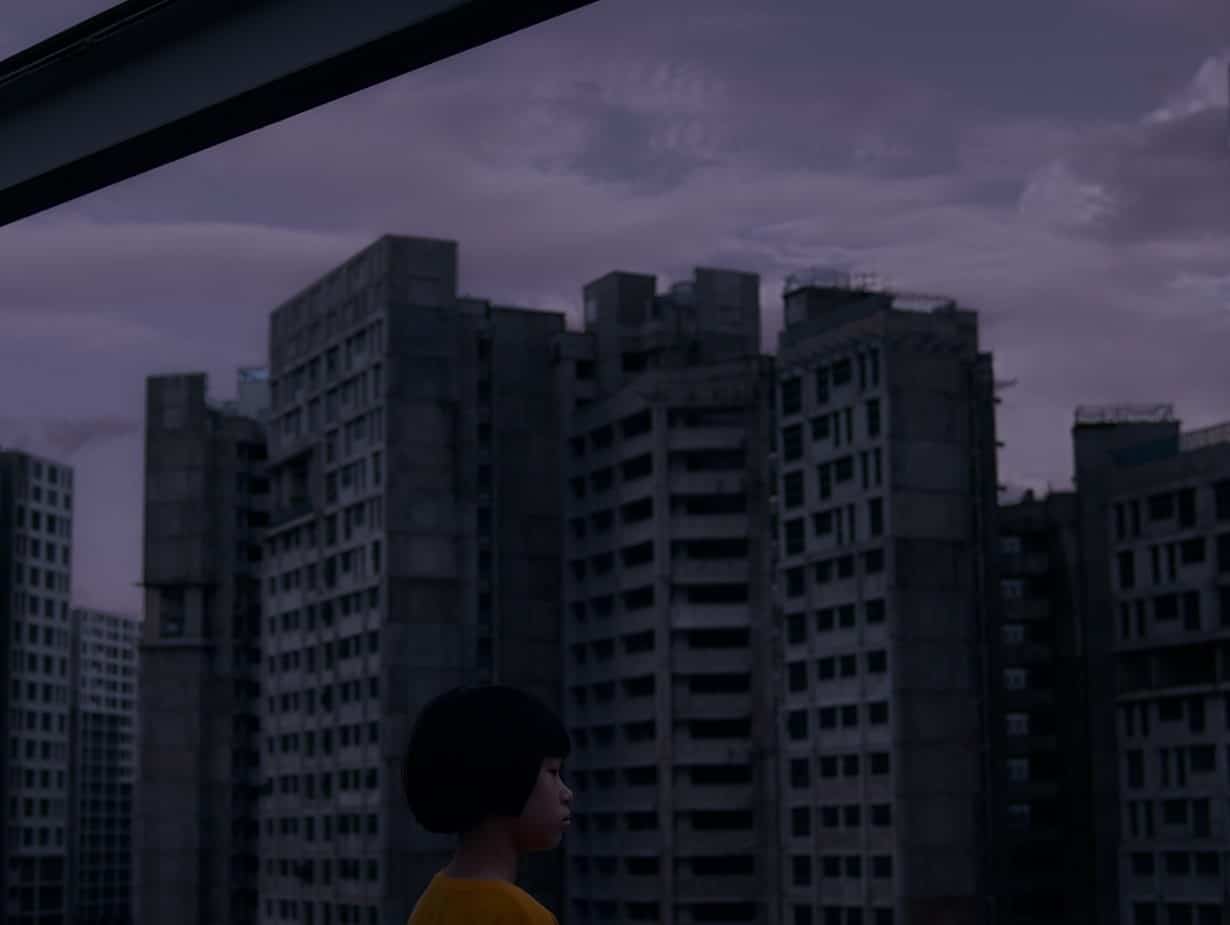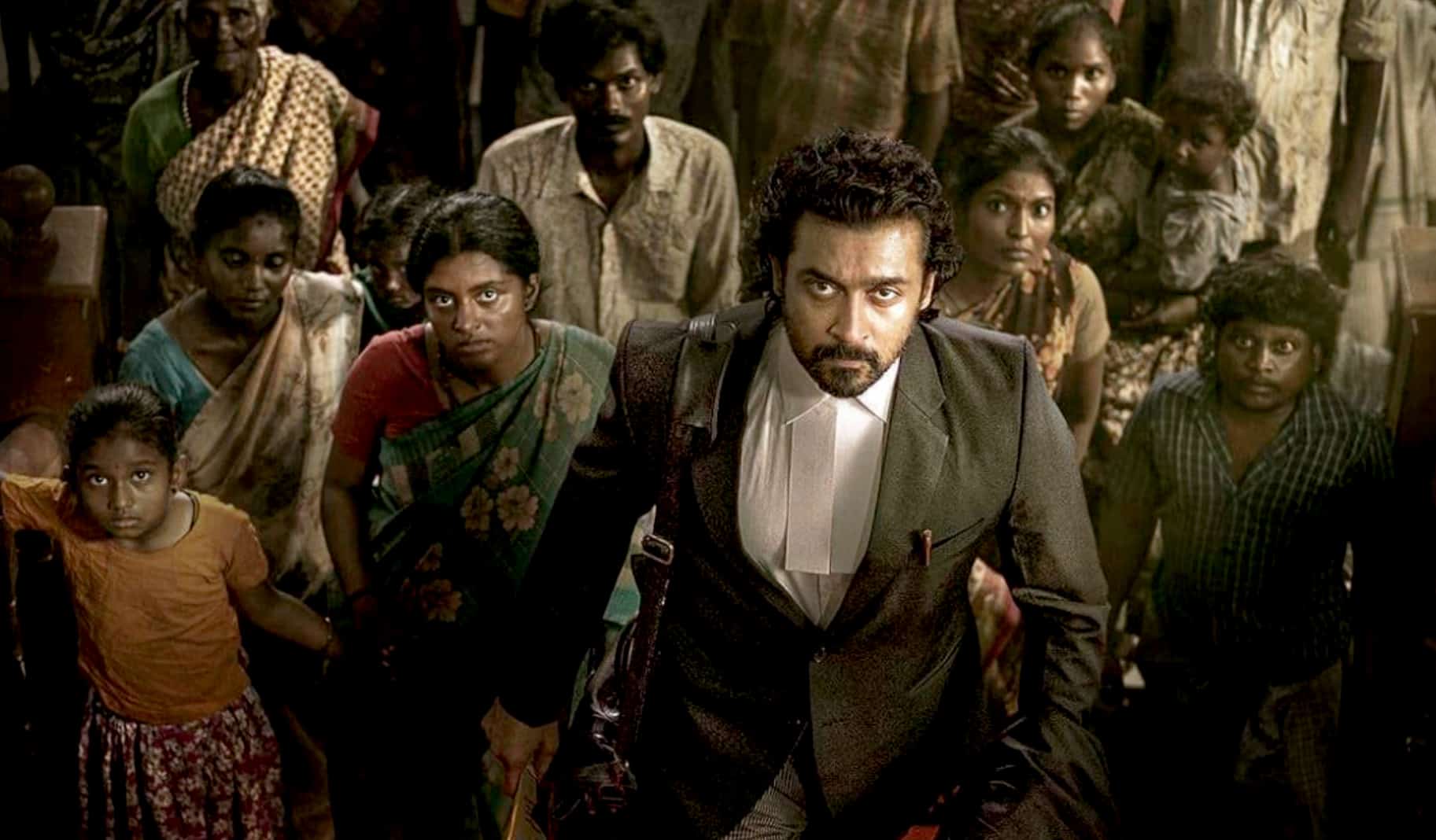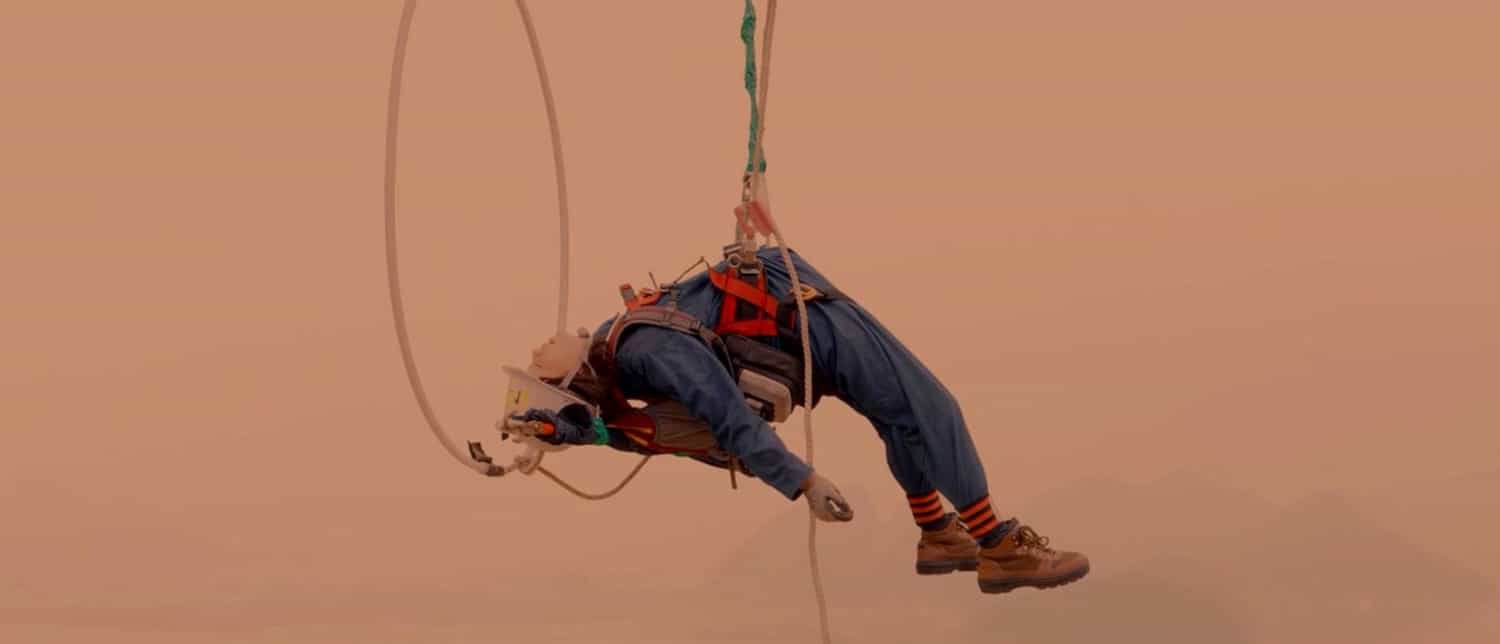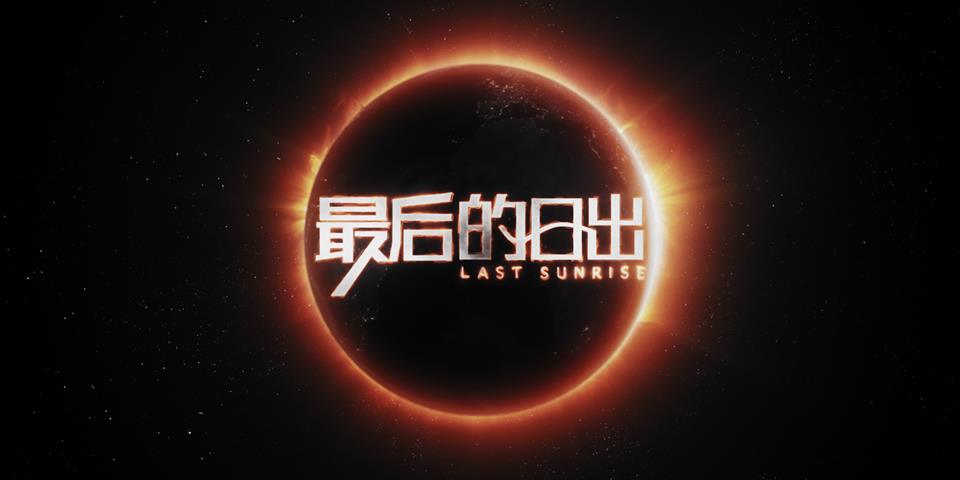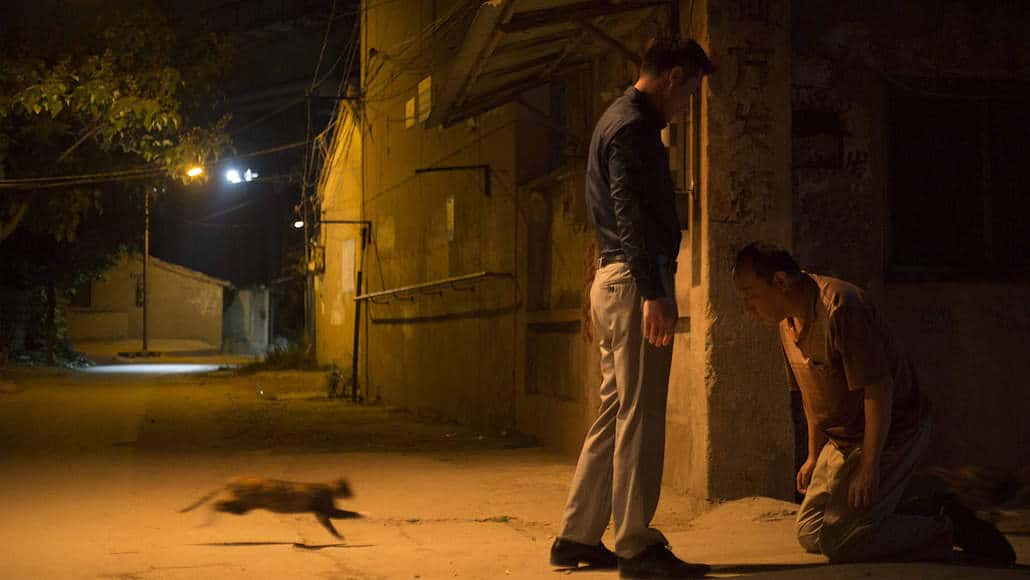Daisuke Miyazaki is a filmmaker that does not stay still, as his cinematic style seems to change with each new effort. The same applies to “Videophobia”, a black-and-white film set in the darkest corners of Osaka, which deals with a number of rarely depicted issues, in a rather unique way.
“Videophobia” is screening at Osaka Asian Film Festival

The story revolves around Ai, a young Korean-Japanese woman who has returned to Osaka from Tokyo and is living in the local Koreatown, in the same house with a number of other women. Her life seems to lead nowhere, since she spends her days in a part-time job as a mascot in a shopping street, her afternoons taking acting classes, and her nights having cyber-sex or in nightclubs. During one of her visits to a night club, she meets a young man and ends up having sex in his apartment. A few days later however, she discovers that he recorded the whole thing and that the sex tape is now uploaded to a porn site. The discovery destroys Ai's world completely, particularly since she seems to lack the courage to confront the man and the police is not exactly eager to help her. Slowly, paranoia takes over her entire life and leads her to a rather extreme decision.
Daisuke Miyazaki deals with a number of topics in the film. The most obvious one is Osaka, and particularly the part of the city that is rarely depicted on cinema, the non-tourist, non-idyllic one if you prefer. This approach sets the basis for the film, as one of dark realism, a sense that is enhanced by the life the main character lives. The scenes in the club with the toilet-paper DJ, Ai's line of work and the police station highlight this approach, as the film also functions as an alternative tour guide/documentary about the area.
The second one revolves around the internet, and particularly the way porn has come to dominate the way people perceive sex through the vast plethora of videos on the web. The policewoman Ai goes to report the events, lays down this truth in the most detached, pragmatist way, as we see her confronting the young woman's fears with a series of facts that seem to state that what happened to her is just a drop in the ocean.

Lastly, and probably most centrally, the film deals with the concept of identity, and particularly the difference between how we perceive ourselves and how other people do. This comment is presented continuously in the film, through a number of scenes. The fact that Ai's roommates consider her an expert on Tokyo, the theatre lessons where the professor asks his students to introduce themselves as if they were another person, the man who records the intercourse and never reveals his name but states that he is not a decent person, the costume Ai wears while working, and most of all, the finale, all point towards this direction.
It is somewhere here, however, that I felt that Miyazaki lost control a bit, as surrealism and the blurring of the borders between reality and fantasy tone down the impact of the comments and somewhat confuse the spectator. Furthermore, a number of his themes seem to be very localized, to the point that one has to know about the racism Korean-Japanese have to face, the way the police usually deals with cases like Ai's, and the conservatism that rules Osaka if one was to understand the film fully, since these aspects are not portrayed or explained in the film almost at all.

On the other hand, the movie thrives on atmosphere. The black-and-white cinematography of Yasutaka Watanabe suits the aesthetics of the film perfectly, and along with the sound, is the main source of the creepiness that seems to dominate its narrative, in an approach that also fits the general context. One can actually feel this pressure Ai seems to feel, and that is a true accomplishment from both direction and the production values. Ryoma Hirata's editing also moves towards the same direction, with the continuous changes in pace communicating AI's psychological status quite eloquently.
Tomona Hirota is excellent in the role of Ai, communicating a number of emotions and psychological statuses with accuracy and artistry, without ever losing her sense of measure, and more impressively, in laconic fashion, mostly through her face and body stance.
One could say that in the case of “Videophobia”, image and aesthetics won over context, but the truth remains that Miyazaki manages to get some (if not all) messages through, while his rather unique approach makes the film very interesting to watch, to say the least.


